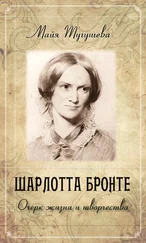Шарлотта Бронте - The Professor
Здесь есть возможность читать онлайн «Шарлотта Бронте - The Professor» — ознакомительный отрывок электронной книги совершенно бесплатно, а после прочтения отрывка купить полную версию. В некоторых случаях можно слушать аудио, скачать через торрент в формате fb2 и присутствует краткое содержание. Год выпуска: 2014, Издательство: epubBooks Classics, Жанр: Классическая проза, на английском языке. Описание произведения, (предисловие) а так же отзывы посетителей доступны на портале библиотеки ЛибКат.
- Название:The Professor
- Автор:
- Издательство:epubBooks Classics
- Жанр:
- Год:2014
- ISBN:нет данных
- Рейтинг книги:3 / 5. Голосов: 1
-
Избранное:Добавить в избранное
- Отзывы:
-
Ваша оценка:
- 60
- 1
- 2
- 3
- 4
- 5
The Professor: краткое содержание, описание и аннотация
Предлагаем к чтению аннотацию, описание, краткое содержание или предисловие (зависит от того, что написал сам автор книги «The Professor»). Если вы не нашли необходимую информацию о книге — напишите в комментариях, мы постараемся отыскать её.
The Professor — читать онлайн ознакомительный отрывок
Ниже представлен текст книги, разбитый по страницам. Система сохранения места последней прочитанной страницы, позволяет с удобством читать онлайн бесплатно книгу «The Professor», без необходимости каждый раз заново искать на чём Вы остановились. Поставьте закладку, и сможете в любой момент перейти на страницу, на которой закончили чтение.
Интервал:
Закладка:
The crisis drew on. No sooner had the holidays commenced than note of preparation for some momentous event sounded all through the premises of Pelet: painters, polishers, and upholsterers were immediately set to work, and there was talk of "la chambre de Madame," "le salon de Madame." Not deeming it probable that the old duenna at present graced with that title in our house, had inspired her son with such enthusiasm of filial piety, as to induce him to fit up apartments expressly for her use, I concluded, in common with the cook, the two housemaids, and the kitchen–scullion, that a new and more juvenile Madame was destined to be the tenant of these gay chambers.
Presently official announcement of the coming event was put forth. In another week's time M. Francois Pelet, directeur, and Mdlle. Zoraide Reuter, directrice, were to be joined together in the bands of matrimony. Monsieur, in person, heralded the fact to me; terminating his communication by an obliging expression of his desire that I should continue, as heretofore, his ablest assistant and most trusted friend; and a proposition to raise my salary by an additional two hundred francs per annum. I thanked him, gave no conclusive answer at the time, and, when he had left me, threw off my blouse, put on my coat, and set out on a long walk outside the Porte de Flandre, in order, as I thought, to cool my blood, calm my nerves, and shake my disarranged ideas into some order. In fact, I had just received what was virtually my dismissal. I could not conceal, I did not desire to conceal from myself the conviction that, being now certain that Mdlle. Reuter was destined to become Madame Pelet it would not do for me to remain a dependent dweller in the house which was soon to be hers. Her present demeanour towards me was deficient neither in dignity nor propriety; but I knew her former feeling was unchanged. Decorum now repressed, and Policy masked it, but Opportunity would be too strong for either of these—Temptation would shiver their restraints.
I was no pope—I could not boast infallibility: in short, if I stayed, the probability was that, in three months' time, a practical modern French novel would be in full process of concoction under the roof of the unsuspecting Pelet. Now, modern French novels are not to my taste, either practically or theoretically. Limited as had yet been my experience of life, I had once had the opportunity of contemplating, near at hand, an example of the results produced by a course of interesting and romantic domestic treachery. No golden halo of fiction was about this example, I saw it bare and real, and it was very loathsome. I saw a mind degraded by the practice of mean subterfuge, by the habit of perfidious deception, and a body depraved by the infectious influence of the vice–polluted soul. I had suffered much from the forced and prolonged view of this spectacle; those sufferings I did not now regret, for their simple recollection acted as a most wholesome antidote to temptation. They had inscribed on my reason the conviction that unlawful pleasure, trenching on another's rights, is delusive and envenomed pleasure—its hollowness disappoints at the time, its poison cruelly tortures afterwards, its effects deprave for ever.
From all this resulted the conclusion that I must leave Pelet's, and that instantly; "but," said Prudence, "you know not where to go, nor how to live;" and then the dream of true love came over me: Frances Henri seemed to stand at my side; her slender waist to invite my arm; her hand to court my hand; I felt it was made to nestle in mine; I could not relinquish my right to it, nor could I withdraw my eyes for ever from hers, where I saw so much happiness, such a correspondence of heart with heart; over whose expression I had such influence; where I could kindle bliss, infuse awe, stir deep delight, rouse sparkling spirit, and sometimes waken pleasurable dread. My hopes to will and possess, my resolutions to merit and rise, rose in array against me; and here I was about to plunge into the gulf of absolute destitution; "and all this," suggested an inward voice, "because you fear an evil which may never happen!" "It will happen; you KNOW it will," answered that stubborn monitor, Conscience. "Do what you feel is right; obey me, and even in the sloughs of want I will plant for you firm footing." And then, as I walked fast along the road, there rose upon me a strange, inly–felt idea of some Great Being, unseen, but all present, who in His beneficence desired only my welfare, and now watched the struggle of good and evil in my heart, and waited to see whether I should obey His voice, heard in the whispers of my conscience, or lend an ear to the sophisms by which His enemy and mine—the Spirit of Evil—sought to lead me astray. Rough and steep was the path indicated by divine suggestion; mossy and declining the green way along which Temptation strewed flowers; but whereas, methought, the Deity of Love, the Friend of all that exists, would smile well–pleased were I to gird up my loins and address myself to the rude ascent; so, on the other hand, each inclination to the velvet declivity seemed to kindle a gleam of triumph on the brow of the man–hating, God–defying demon. Sharp and short I turned round; fast I retraced my steps; in half an hour I was again at M. Pelet's: I sought him in his study; brief parley, concise explanation sufficed; my manner proved that I was resolved; he, perhaps, at heart approved my decision. After twenty minutes' conversation, I re–entered my own room, self–deprived of the means of living, self–sentenced to leave my present home, with the short notice of a week in which to provide another.
Chapter XXI.
DIRECTLY as I closed the door, I saw laid on the table two letters; my thought was, that they were notes of invitation from the friends of some of my pupils; I had received such marks of attention occasionally, and with me, who had no friends, correspondence of more interest was out of the question; the postman's arrival had never yet been an event of interest to me since I came to Brussels. I laid my hand carelessly on the documents, and coldly and slowly glancing at them, I prepared to break the seals; my eye was arrested and my hand too; I saw what excited me, as if I had found a vivid picture where I expected only to discover a blank page: on one cover was an English postmark; on the other, a lady's clear, fine autograph; the last I opened first:—
"MONSIEUR,
"I FOUND out what you had done the very morning after your visit to me; you might be sure I should dust the china, every day; and, as no one but you had been in my room for a week, and as fairy–money is not current in Brussels, I could not doubt who left the twenty francs on the chimney–piece. I thought I heard you stir the vase when I was stooping to look for your glove under the table, and I wondered you should imagine it had got into such a little cup. Now, monsieur, the money is not mine, and I shall not keep it; I will not send it in this note because it might be lost—besides, it is heavy; but I will restore it to you the first time I see you, and you must make no difficulties about taking it; because, in the first place, I am sure, monsieur, you can understand that one likes to pay one's debts; that it is satisfactory to owe no man anything; and, in the second place, I can now very well afford to be honest, as I am provided with a situation. This last circumstance is, indeed, the reason of my writing to you, for it is pleasant to communicate good news; and, in these days, I have only my master to whom I can tell anything.
"A week ago, monsieur, I was sent for by a Mrs. Wharton, an English lady; her eldest daughter was going to be married, and some rich relation having made her a present of a veil and dress in costly old lace, as precious, they said, almost as jewels, but a little damaged by time, I was commissioned to put them in repair. I had to do it at the house; they gave me, besides, some embroidery to complete, and nearly a week elapsed before I had finished everything. While I worked, Miss Wharton often came into the room and sat with me, and so did Mrs. Wharton; they made me talk English; asked how I had learned to speak it so well; then they inquired what I knew besides—what books I had read; soon they seemed to make a sort of wonder of me, considering me no doubt as a learned grisette. One afternoon, Mrs. Wharton brought in a Parisian lady to test the accuracy of my knowledge of French; the result of it was that, owing probably in a great degree to the mother's and daughter's good humour about the marriage, which inclined them to do beneficent deeds, and partly, I think, because they are naturally benevolent people, they decided that the wish I had expressed to do something more than mend lace was a very legitimate one; and the same day they took me in their carriage to Mrs. D.'s, who is the directress of the first English school at Brussels. It seems she happened to be in want of a French lady to give lessons in geography, history, grammar, and composition, in the French language. Mrs. Wharton recommended me very warmly; and, as two of her younger daughters are pupils in the house, her patronage availed to get me the place. It was settled that I am to attend six hours daily (for, happily, it was not required that I should live in the house; I should have been sorry to leave my lodgings), and, for this, Mrs. D. will give me twelve hundred francs per annum.
Читать дальшеИнтервал:
Закладка:
Похожие книги на «The Professor»
Представляем Вашему вниманию похожие книги на «The Professor» списком для выбора. Мы отобрали схожую по названию и смыслу литературу в надежде предоставить читателям больше вариантов отыскать новые, интересные, ещё непрочитанные произведения.
Обсуждение, отзывы о книге «The Professor» и просто собственные мнения читателей. Оставьте ваши комментарии, напишите, что Вы думаете о произведении, его смысле или главных героях. Укажите что конкретно понравилось, а что нет, и почему Вы так считаете.











